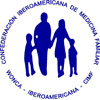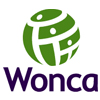Referral profile of a rural health team in south Brazil
Resumo
Introduction: Referral profile studies are one way of evaluating health care efficiency. It is estimated that 5-15% of all consults in primary care will need specialized care. Rural health care teams must have a better scope of services to compensate distance, difficult continuity in city services and sometimes less adhesion to specialized care.
Objective: To study the profile of references to specialized care of a rural health unity. To understand the most needed specialists. Comparisons with urban areas in same region are also made.
Methodology or experience description: For one year all specialized references from a rural health team was recorded, as well as the reason of reference, the specialist needed. Comparisons were made with an urban service in the same region (Takeda, 1999). The rural unity worked with a single family physician for this period
Results: References were done approximately 5%. Most of them were for ophthalmologists (42%), dermatologist (10%), traumatology/orthopedist (8%), cardiology (6%), neurology (6%), gyn&obst (5%), urology (4%), general surgery(3%), otorhinolaryngology (3%). The other specialties had <=2%. The main differences compared with urban area were the lower otorhinolaryngology, neurology references, bigger trauma and dermatology references, probably due to rural work and skin differences. Most clinical references were lower in rural setting suggesting a broader scope of abilities and/or worst access. This data suggest that rural population would benefit of an optometry public policy.
Conclusions or Hypothesis: Rural services need to deal with a broader scope of health problems, smaller teams and difficulties in access to specialized care, leading to differences in reference profile compared with urban areas. More studies are needed to better guide rural health and formation of health professionals policies
Palavras-chave
Texto completo:
PDF (English)Apontamentos
- Não há apontamentos.
Este periódico é de responsabilidade das associações:
Apoio institucional:







